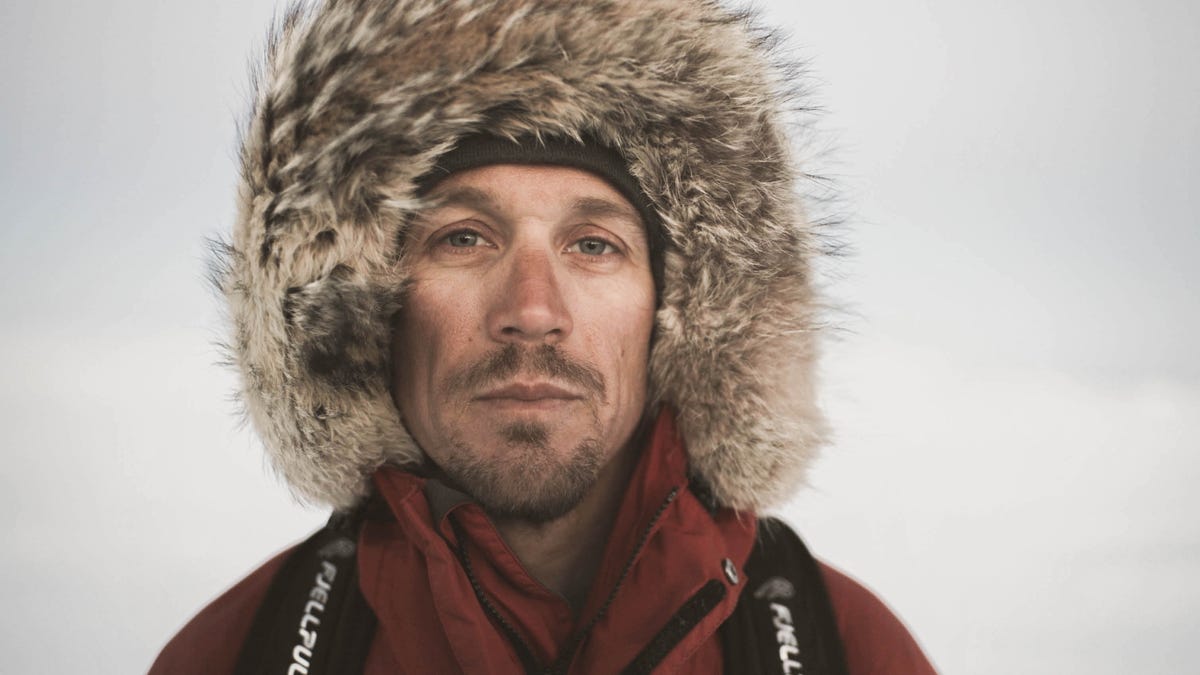The Netflix documentary about Colin O’Brady’s latest journey will be directed by Oscar winner James Reed (“My Octopus Teacher”).
Endurance athlete Colin O’Brady, celebrated internationally in 2018 as the first person to traverse Antarctica solo and unassisted, is returning to the unforgiving continent for an even more arduous trek.
In November, O’Brady, 40, will embark on a solo, unsupported 2,000-mile ski crossing of Antarctica over 110 days. Oscar-winning director James Reed (“My Octopus Teacher”) will chronicle the endeavor for an upcoming Netflix documentary.
The planned route is further and more challenging than O’Brady’s previous 54-day, 930-mile land journey that avoided Antarctica’s crevasse-filled coastal ice shelves.
“This is twice as far as my last Antarctic crossing. And it’s not just over the land mass, but over the frozen ice shelves,” O’Brady tells USA TODAY. “And in terms of challenges: It’s Antarctica – the coldest, windiest, most barren continent on the planet.”
There will be no resupplies of food or fuel. All journey necessities will be packed onto the 500-pound sled that O’Brady will pull on skis as he faces minus-40 degree temperatures, compounded by hurricane-force winds.
“This is as cold as cold gets, with the windchill dropping to minus-70 degrees.” says O’Brady. “On the last trip, I threw a cup of boiling water in the air and it actually turned into ice. And I’m alone for 110 days. So that is solitude.”
Colin O’Brady is training for his return to Antarctica with ‘Love Camp’
O’Brady recalls that on Day 53 of the 2018 journey, he found inspiration when he was “completely depleted, exhausted and my body was declining.”
“I was literally down on my knees and I started feeling this energy. I started saying, ‘Infinite love,’ ” says O’Brady. “That day I pulled my sled 77 miles and 33 hours non-stop. I felt I tapped into something deeper.”
To recapture that power, the Oregon-raised former triathlete will spend the remainder of his final two months before the trek training on his home turf of the Oregon coast, dragging his snow sled on the familiar beaches. O’Brady calls it “The Love Camp,” where he’ll be surrounded by friends, family, spiritual teachers and trainers.
“Can I combine that essence of love, support, community, family and bring that on my sled instead of encountering that on Day 53?” O’Brady asks. “Can I go twice as far? Antarctica has to be the proving ground that brings that out to the highest level.”
He’s trained in frozen Greenland and in Iceland to prepare. “But Antarctica is just its own place. It’s impossible to simulate.”
Intensive workouts, weight training and, yes, cold plunges, are part of the training regiment. But so is putting on weight with foods like ice cream and waking up at night to pound milkshakes. O’Brady estimates he’s added 30 pounds to his 170-pound frame and will seek to hit 210 before embarking.
“That’s not bigger muscles. I’m literally trying to create a little bit of a fat belly,” says O’Brady. “I’m not just going to be eating food from my sled, but using the extra fat reserves on my body.”
How will O’Brady make the documentary with director James Reed?
Reed and his crew have been filming the preparation and will document all the way through the dropoff on Antarctica’s Ross Ice Shelf.
“But when the plane flies away, so does James and the camera crew,” says O’Brady. “And then I’m alone for what I’m projecting to be 110 days. They’ll be on the pickup point at the other side of the continent.”
O’Brady will provide footage and commentary from the journey on his GoPro camera.
“I have experience with self-filming with the past, but this is a different level here,” he says. “I’ll bring the viewers into the extremeness of being alone in Antarctica.” The documentary will also interweave O’Brady’s inspiring life story – which includes recovering from a near-fatal burn from fire dancing in Thailand at age 22 – and record–setting achievements.
For the immediately curious, O’Brady will carry a GPS device that will allow followers to track his movements every 10 minutes on his website.
O’Brady remains ‘super-proud’ of his 2018 effort, despite criticism
O’Brady’s 2018 Antarctic crossing later sparked controversy. Media outlets like National Geographic and polar explorers questioned whether some of his claims were embellished (which O’Brady forcefully denied) and criticized the all-land route that included traveling on pre-existing tracks.
Did the criticism fuel his tougher, more extensive route for the second crossing (and fifth adventure journey to Antarctica)? O’Brady says no.
“I remain super-proud of what I accomplished in 2018,” O’Brady says. “My reason for returning to Antarctica again and again is 100% about my desire to go further, exploring the limits of human potential and infinite love, and inspiring others to go further in their own lives.”

